Introduction to AI Sales Tools
Do you know AI is taking over sales?
Sounds alarming, right, but it’s happening faster than you might think.
And this shift isn’t just about replacing jobs; it’s about enhancing them.
Sales teams that adopt AI tools are more efficient and see a significant boost in revenue. Companies leveraging AI report up to a 30% increase in sales productivity (Source McKinsey).
Whether you’re a seasoned sales professional or new to the field, understanding AI sales tools can give you a competitive edge in today’s fast-paced market.
Hereon, we’ll explore what AI sales tools are, the benefits they bring, and the best practices for implementing them.
We’ll also look at the tools available and how to measure their success.
What Makes AI Sales Tools Unique?
AI sales tools are no longer futuristic concepts—they are here and outperforming human sales teams in critical areas. From ultra-targeted recommendations to conversations that feel completely human-like, this technology is transforming sales.
Their unique features enhance the customer experience and drive results.
Mimicking Human Conversation
AI sales tools excel at engaging customers in natural dialogue. They understand context and respond appropriately, making interactions feel personal.
Bank of America employs an AI sales tool on its website to answer common customer inquiries, resulting in a 40% reduction in call center traffic (Source Forrester).
Adaptive Learning
These tools learn from every interaction. A sales AI tool analyzes past conversations to improve future responses.
If a customer frequently asks about a specific product feature, the AI tool for sales will prioritize that information in subsequent chats. This ongoing learning process makes them increasingly effective.
Emotional Intelligence
Emotional intelligence in AI interactions allows these tools to recognize customer feelings.
Zalando uses an AI tool for sales that can detect frustration in customer messages. It responds empathetically, helping to de-escalate issues and improve satisfaction. This approach can lead to higher conversion rates.
Integration with Digital Tools
AI sales tools seamlessly integrate with other digital platforms, enhancing their functionality.
When connected to a CRM, the AI sales tool software can automatically log conversations and follow up with relevant marketing materials. This integration streamlines processes and improves efficiency.
Unique Applications Across Industries
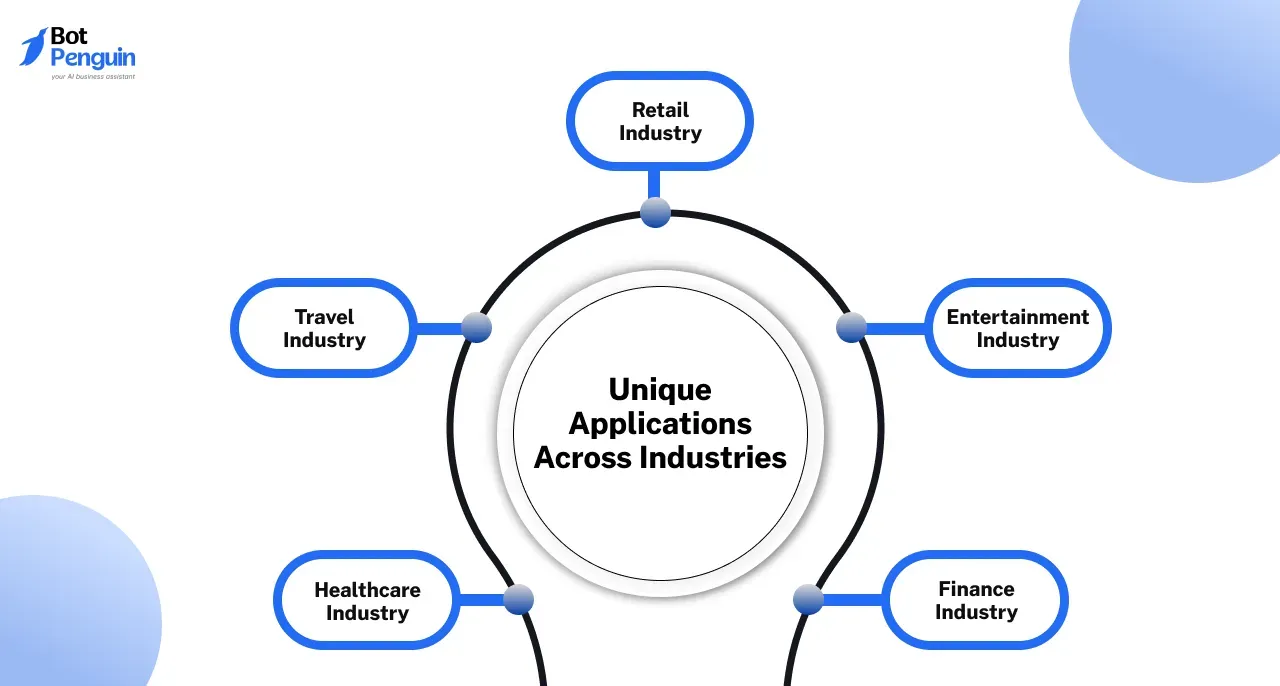
From travel booking to healthcare, AI-assisted sales are transforming various sectors. In the travel industry, airlines use AI tools to guide customers through the booking process, analyzing preferences to offer tailored recommendations.
The unique capabilities of AI sales tools—such as human-like conversation, adaptive learning, emotional intelligence, integration with digital tools, and diverse applications—make them essential in today’s competitive sales environment.
Transformative Benefits of AI Sales Tools
AI sales tools are revolutionizing how businesses engage with customers. They enhance productivity, personalize experiences, and streamline operations.
These benefits can lead to significant improvements in sales outcomes.
Boosting Productivity

AI can dramatically increase productivity by automating routine tasks. Companies using an AI sales tool can handle initial customer inquiries, allowing sales teams to focus on complex cases.
Research shows that companies implementing AI for sales see up to a 40% increase in team productivity (Source McKinsey).
Personalization
Personalization is another key advantage. An AI sales tool analyzes customer data to tailor interactions.
Amazon uses an AI tool for sales to recommend products based on past purchases, which increases customer satisfaction and can lead to higher conversion rates. Personalized recommendations can boost sales by as much as 10% (Source McKinsey).
Lead Generation
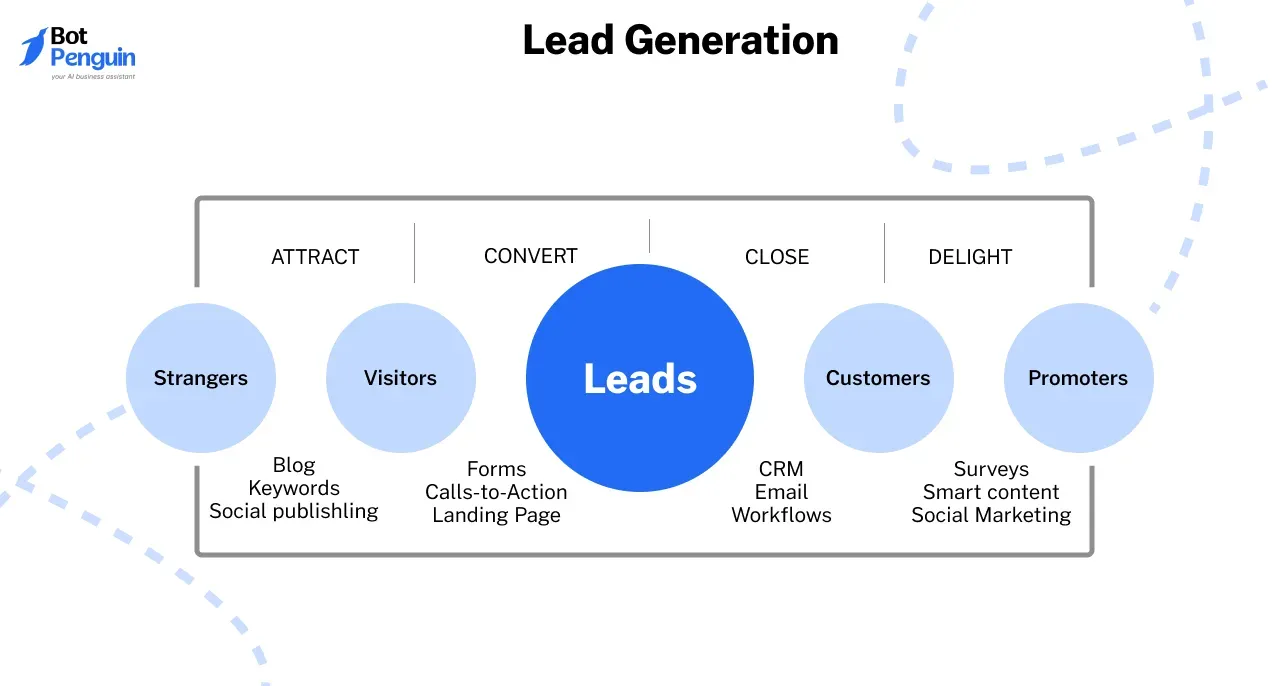
AI plays a crucial role in lead generation. A sales AI tool identifies potential leads based on various data points and prioritizes outreach to those most likely to convert.
A tech startup implemented AI sales tool software that analyzed website visitor behavior to score leads, resulting in a 25% increase in qualified leads (Source HubSpot).
Targeted Marketing
Data analysis for targeted marketing is another transformative benefit. AI tools sift through vast amounts of data to identify trends and customer preferences.
Coca-Cola used an AI tool for sales to analyze customer feedback and adjust its marketing strategies, leading to a 15% increase in campaign effectiveness (Source Nielsen).
Cost-Effectiveness
Cost-effectiveness is a major benefit of AI-assisted sales. Automating routine tasks reduces the need for a large support team, leading to lower operational costs.
A financial services firm reported saving 30% on customer service costs after integrating an AI tool for sales. These savings can be reinvested in other areas of the business, driving growth.
AI sales tools enhance productivity, personalize customer experiences, streamline lead generation, improve data analysis, and reduce costs. These advantages make them essential for businesses aiming to thrive in today’s competitive landscape.
Strategies for Successful AI Integration
Integrating an AI sales tool can transform your business. However, successful integration requires a thoughtful approach. Here are key strategies to ensure that AI becomes a valuable asset
- Start with a Customer-First Mindset: Understand your customers' needs and preferences by gathering feedback and analyzing interactions. Which will ensure that the AI solution addresses real issues.
- Identify Specific Pain Points: Analyze where your sales process is lacking. Clearly define the problems you want to solve, such as slow lead qualification or response times.
- Ensure Cross-Department Collaboration: Bring together sales, marketing, and customer service teams to create a cohesive strategy. Open communication helps align goals and identify challenges early.
- Focus on User-Friendly Interfaces: Design the AI tool to be intuitive and easy to use. Providing training sessions can boost team confidence and increase adoption rates.
- Plan for Ongoing Support and Updates: Review the AI's performance regularly and gather user feedback. Continuous improvement ensures that AI remains relevant and effective.
Successful integration of an AI sales tool involves a customer-first mindset, identifying specific pain points, fostering collaboration, emphasizing user-friendly design, and planning for ongoing support.
These strategies help businesses leverage AI's potential and drive sales success.
Innovative AI Sales Tool to Consider
Choosing the right AI sales tool can significantly enhance your sales process. Here are some innovative options to explore, each with unique strengths
BotPenguin
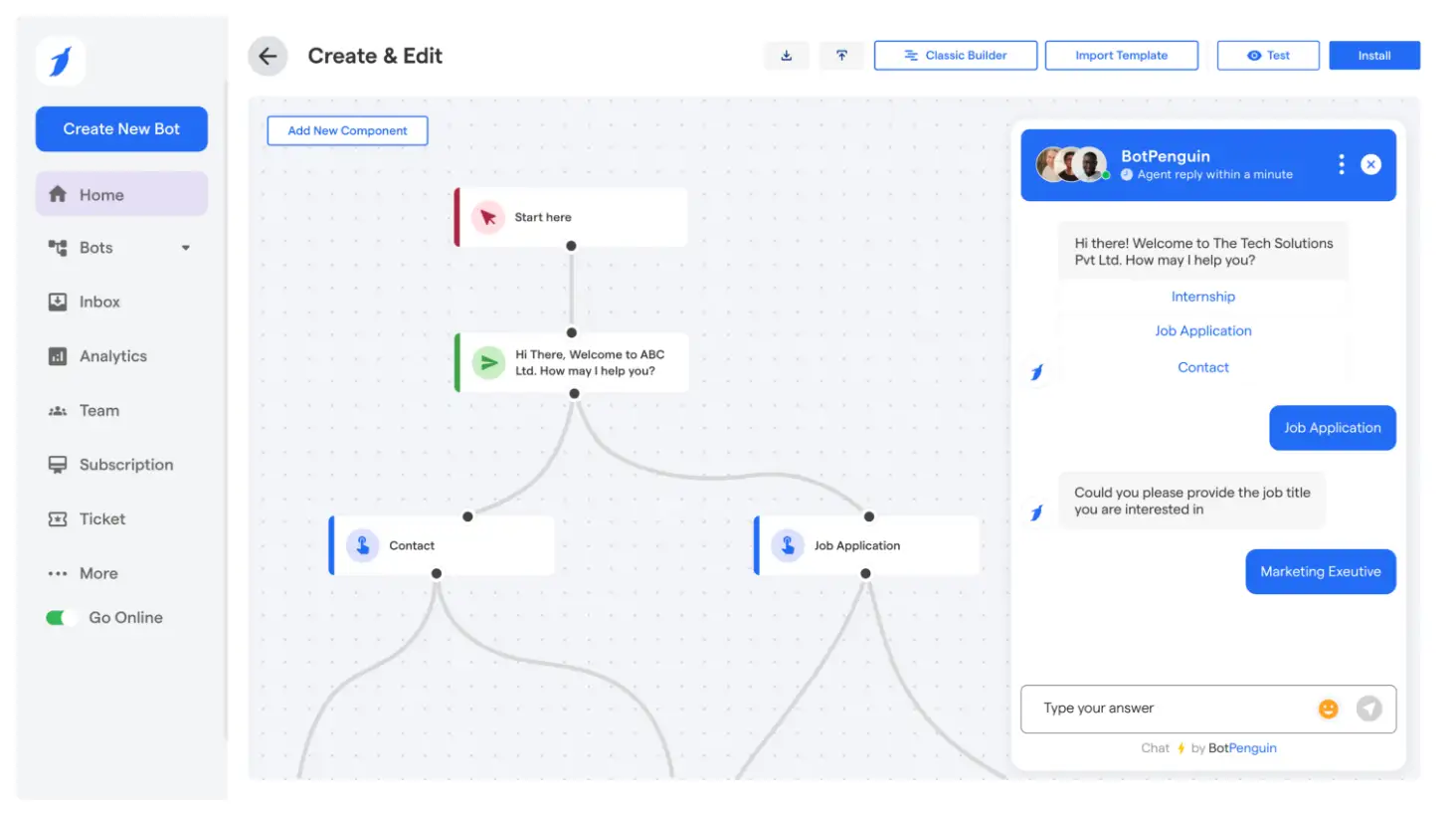
- BotPenguin creates custom chatbots for websites and social media.
- It can be configured on the ChatGPT OpenAI platform by selecting the tool model.
- Offers an intuitive interface to design and customize chat experiences.
- Automates customer inquiries, improving response times and customer satisfaction.
- Ideal for small businesses looking to streamline customer service and interactions.
Conversica
- Provides powerful lead engagement capabilities.
- Automates follow-ups and nurtures leads through personalized conversations.
- The Lupo Group experienced a 20% increase in conversions after using Conversica for managing lead follow-ups.
Tidio
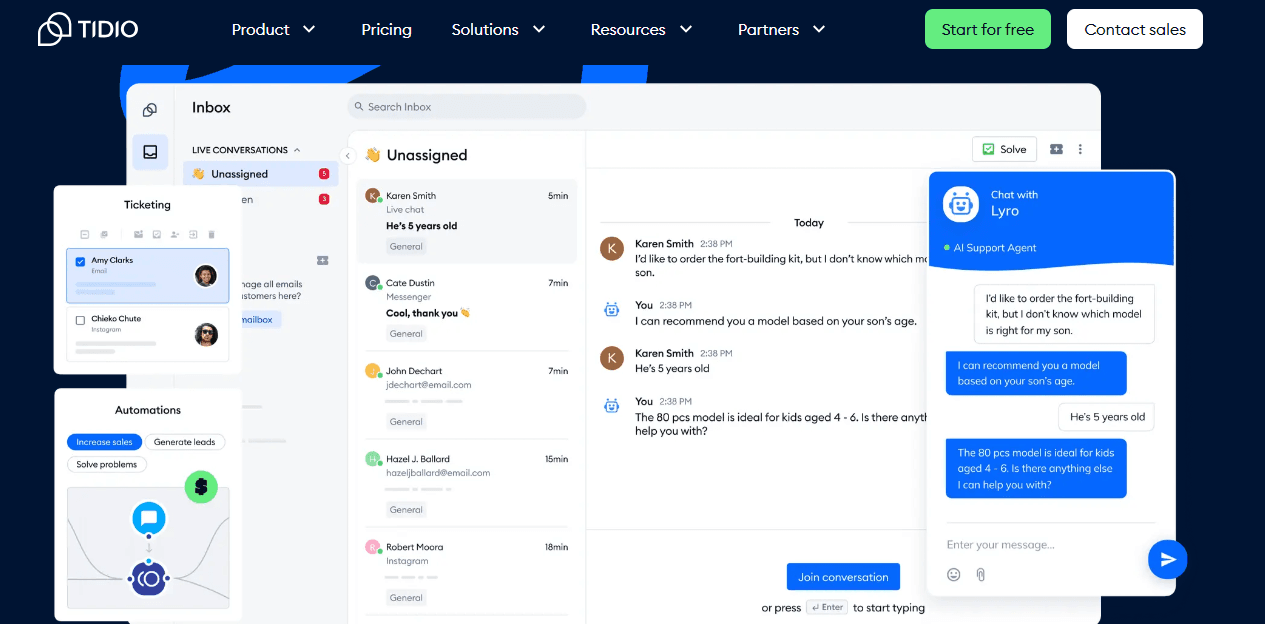
- Excels in real-time engagement with live chat and AI chatbots.
- Allows businesses to interact with customers instantly.
- T-Shirt Factory saw a 15% increase in sales within the first month of implementing Tidio for customer assistance.
ManyChat
- Highly versatile for social media engagement.
- Enables businesses to create chatbots for platforms like Facebook Messenger and Instagram.
- A food delivery service DoorDash increased repeat orders by 30% by using ManyChat to send updates and promotions.
Criteria for Selecting the Right Tool
By assessing these innovative tools based on the following criteria, you can choose an AI Tool for sales that fits your needs best and drives success.
- Evaluate ease of integration and user-friendliness.
- Consider scalability to ensure the tool can grow with your business.
- Look for features that align with your specific sales goals and customer engagement strategies.
Overcoming Integration Challenges
Integrating an AI sales tool can bring many benefits, but it also comes with challenges. Understanding these hurdles and how to address them is crucial for successful implementation.
Identify Common Pitfalls
Many businesses face issues like resistance to change or lack of clear goals. Companies that implemented an AI tool for sales found that employees were unsure about its purpose.
This confusion led to low engagement and ineffective use of the AI. Identifying such pitfalls early can help you create strategies to avoid them.
Importance of Training and Onboarding
Proper training is essential for user adoption. Without it, team members may feel overwhelmed.
A financial firm that introduced an AI sales tool provided extensive training sessions. This effort resulted in a 50% increase in team confidence and a smoother integration process.
Need for Clear Communication
Make sure all stakeholders understand the goals of the AI tool for sales. Regular updates and discussions can alleviate concerns.
Hold weekly meetings to address questions and share progress, which keeps everyone aligned and engaged.
Solutions for Technical Compatibility Issues
Technical challenges can arise when integrating new systems. Conduct a thorough assessment of existing technology to ensure compatibility with the AI for sales platform.
Companies facing issues resolve them by working closely with their IT department to customize the integration process.
Methods for Gathering User Feedback
Collecting user feedback is vital for continuous improvement. Use surveys, focus groups, or one-on-one interviews to gather insights.
Implementing regular feedback sessions with staff using the AI sales tool, allows to make timely adjustments, increasing overall satisfaction and efficiency.
Addressing these challenges, businesses can effectively integrate their AI sales tool, maximizing its potential to enhance sales processes and customer interactions.
Metrics for Measuring AI Sales Tool Success
To ensure your AI sales tool delivers real value, it’s essential to track key performance metrics. These metrics provide insights into its effectiveness and areas for improvement.
- Define Actionable KPIs for Sales Performance: Establish clear Key Performance Indicators (KPIs) that align with your sales goals. Metrics like lead response time, number of leads converted, and overall sales growth are critical.
- Methods for Real-Time Data Tracking: Utilize tools that allow for real-time data monitoring. Dashboards can provide instant insights into the performance of your AI tool for sales.
- Importance of Customer Satisfaction Scores: Customer satisfaction is a crucial metric for evaluating the success of your AI tool for sales. Regularly survey customers about their experiences.
- Highlight Conversion Rate Analysis as a Key Metric: Analyzing conversion rates is essential to gauge the effectiveness of your AI for sales. Monitor how many leads convert into paying customers.
- Encourage Regular Performance Reviews: Set a schedule for performance reviews of your AI sales tool. Regular assessments allow you to identify trends and make necessary adjustments.
Focusing on these metrics, businesses can effectively measure the success of their AI sales tool, ensuring it contributes positively to sales efforts and customer satisfaction.
Emerging Trends in AI Sales Assistance
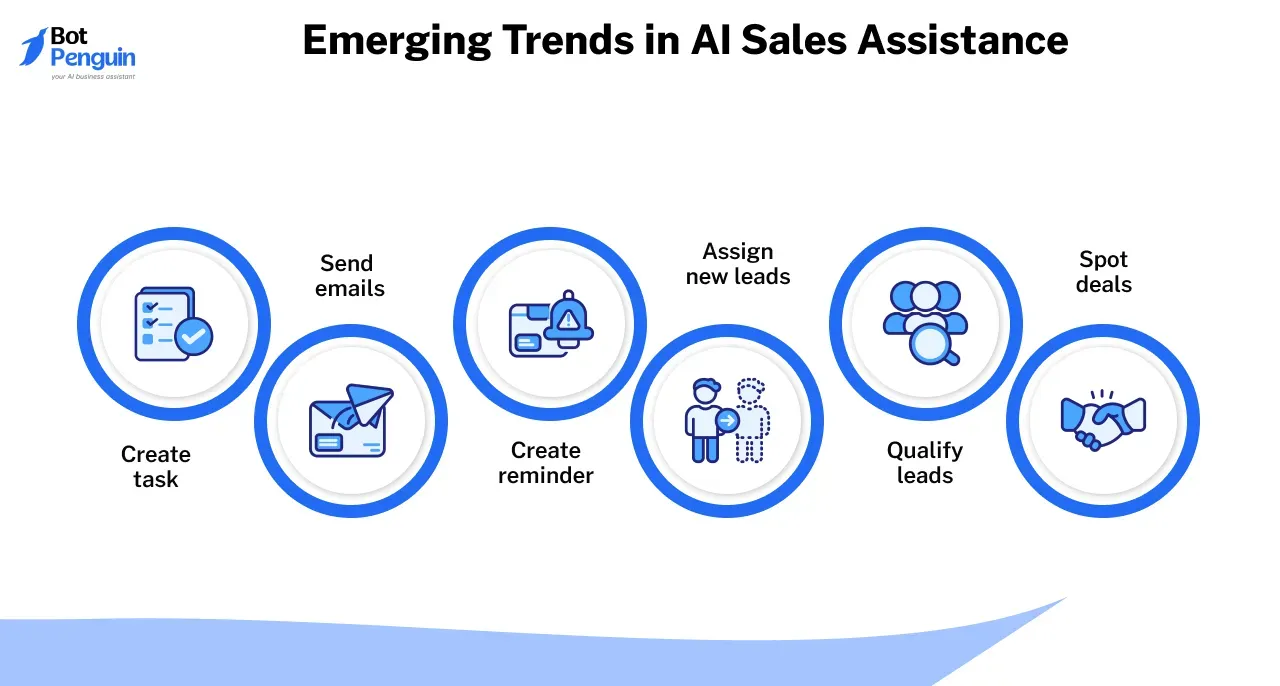
The landscape of AI sales tools is rapidly evolving. Staying informed about emerging trends can help businesses leverage these technologies for greater success.
- Rise of Voice-Activated Tools: Voice technology is becoming more prevalent in sales. Many teams are adopting voice-activated AI tools for sales to streamline tasks.
- Advancements in Predictive Analytics: Predictive analytics is enhancing how businesses approach sales. By analyzing data, AI sales tools can forecast customer behavior and preferences.
- Trend Towards Hyper-Personalization: Customers now expect personalized experiences. AI-assisted sales tools can analyze individual customer data to tailor recommendations.
- Potential Ethical Considerations: As AI use is growing, ethical concerns are also arising. Issues around data privacy and consent must be addressed. Businesses should establish guidelines to ensure ethical AI practices.
- Future Impacts on the Sales Workforce: The integration of AI is likely to reshape the sales workforce. While some roles may become automated, new job opportunities focused on strategy and relationship-building will arise. Companies that adapt to these changes will flourish in the future marketplace.
Embracing these trends will enhance sales performance and prepare businesses for the evolving landscape of AI in sales.
Conclusion
AI is transforming sales in remarkable ways. It enhances productivity, personalizes customer experiences, and streamlines operations. Companies must proactively explore AI tools for sales to stay competitive.
Adaptability is key; the sales landscape is changing rapidly. Start small with pilot projects to test AI sales solutions like BotPenguin, which can simplify customer interactions and improve engagement.
By embracing these innovations, businesses can unlock the full potential of AI sales tools and position themselves for future success.
Frequently Asked Questions (FAQs)
What features should I look for in an AI Sales tool?
Look for natural language processing, CRM integration, and adaptive learning in your AI sales tool.
How can AI sales tools personalize customer interactions?
AI for sales analyzes customer data to tailor recommendations and responses based on individual preferences.
What metrics should I track for AI-assisted sales?
Focus on conversion rates, lead response times, customer satisfaction scores, and overall sales growth with your AI tool for sales.
Can AI for sales replace human sales teams?
No, AI sales tools enhance their capabilities by automating tasks, allowing humans to focus on building relationships.
Is training necessary for using an AI tool for sales?
Yes, proper training ensures effective use of your AI sales tool and helps team members feel confident in leveraging the technology.



